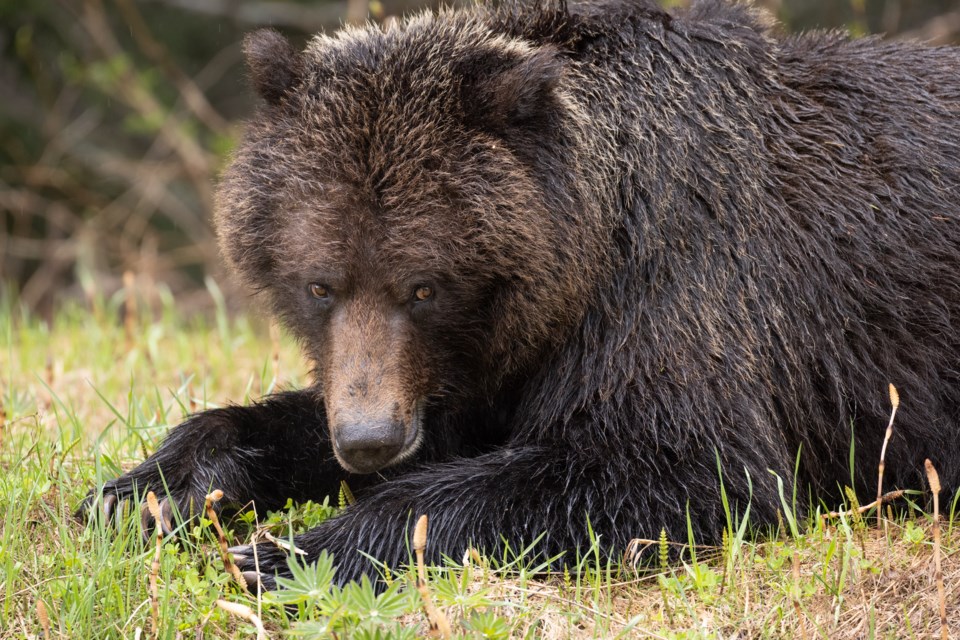Pemberton Meadows and Britannia Beach are two Sea to Sky hotspots for wildlife interaction, according to Sea to Sky WildSafeBC coordinator Elise Pullar.
In a presentation to the Squamish-Lillooet Regional District (SLRD) at its Oct. 25 board meeting, Pullar shared details and information gathered from previous years of WildSafeBC operations, and a year of on-the-ground work.
“Within the Pemberton Meadows there has been increased interactions between grizzly bears and local farm families, especially to do with crops such as blueberries, carrots and lettuce,” she said about the region just north of Pemberton, where there is increasing concern for the habituation of grizzlies.
In an interview afterwards, Pullar added the increase in interaction is due to a recovering grizzly population and more human activity in the area.
Encounters and reports of grizzly interactions have risen in recent years locally, according to data from the Conservation Officer Service.
On the other end of WildSafeBC’s local area of responsibility, Pullar said Britannia Beach is also a hotspot for black bears “in general,” and that trend has continued in 2023.
“[It’s] not necessarily a larger population of black bears, but black bears in that area have been known to become habituated because of attractants,” she said.
Pullar, who has been the WildSafeBC coordinator for the past season, noted her report was not backed by up-to-date data from 2023, as it was not yet available, but from her day-to-day work and reports from the community.
“The most calls and emails and direct contacts that I received from the public was from those two areas, and the most door-to-door work I did,” she said.
In her report to the SLRD, Pullar said there is still a lot of work to do.
Some data she could use for 2023 was on “bin-tagging,” where WildSafeBC would visit a neighbourhood and take note of rubbish bins put out too early for collection, giving wildlife easy access to a food source. Pullar said data from 2023 and back to 2020 shows there was a reduction in the number of bins being put out due to educational outreach and fines.
In 2023, WildSafeBC focused on Britannia Beach, and Pullar’s data showed there was a significant reduction in bins put out too early in 2023 compared to 2020 (from 35 down to just eight).
But “there is work to be done. There are still bins out, so there are still people that need to be educated,” she said.
Going forward, Pullar told the SLRD board she has heard the community wants a past electric fence cost-sharing program to make a return. She noted it has not gotten off the ground in 2023.
She’s also heard a desire from the community for a bear/wildlife expert focused on the Pemberton and Lillooet area. The local WildSafeBC program encompasses Britannia Beach through to Lillooet.
Speaking to Pique, Pullar said the Sea to Sky is a lot of ground for one coordinator to cover, and suggested two coordinators be assigned to the region in the future. She also suggested an expert on human/bear interaction be based in the Pemberton area due to the combination of factors already mentioned, and to help fill gaps in support for locals.
“[The Pemberton community] expressed they can’t get in contact with the Conservation Officer Service fast enough to prevent bears from getting habituated,” she said.
The local WildSafeBC program will wrap up at the end of November, as it is a seasonal position.




